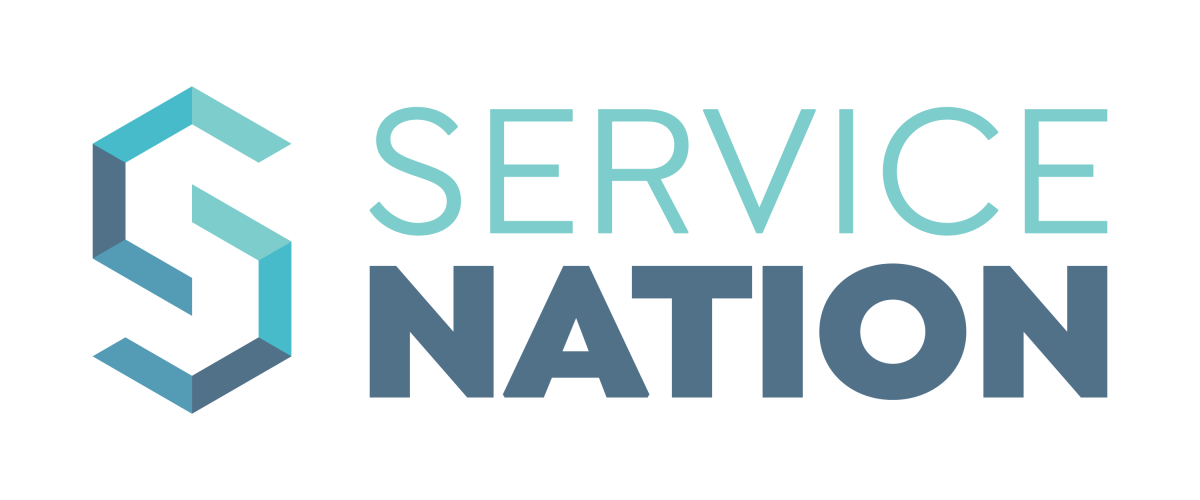Dave Rothacker: I’m going to start off with, What Color Is Your Parachute: A practical manual for Job Hunters and Career Changes. In each of these books, we’re going to see an overall theme of purpose and why a vision and transformation. And we’ll see that in each of these books but before I get into the parachute book, I want to talk about another book and an author that I had bumped into years ago that I learned a technique that really helped me as a manager over my time in the field.
And that was when my older daughter was a junior in college I started really paying attention to the generation Y and this was in 2001, 2002, and I really immersed myself in the field. Now, this was before generation Y graduated from college. He is the oldest of that generation, and in that immersion into what they were all about, I met a lady. Her name was Penelope Trunk, and she was just on the cusp of being an expert of that generation. And she studied it intently for years and then I say about 2006 or seven, generation Y had been in the workplace for about four or five years. She had made a really intensive study of them at that time. She was really able to identify trends, characteristics, you know, and that sort of thing. She wrote a book by the name of Brazen Careerist, and at the time I was a manager and I really wanted to learn about generation Y.
So I immersed myself in that but I mean, I really wanted to learn at that point more about generation Y as they evolve. And so I bought that book and I developed a friendship with this author and I would kid her and tell her that I was really an espionage mode. I was a 50 something-year-old person here and trying to learn about generation Y from an inverted approach. And so that was a technique that I learned. And I used that in, What Color Is Your Parachute. Now, What Color Is Your Parachute: A Practical Manual for Job-Hunters, it’s designed for a job hunter. However, it’s probably one of the best books on management that I’ve ever read. And it is one of the best books that I’ve ever read. It’s also listed under the Library of Congress, 25 books that shaped reader’s lives. So it’s quite an impactful book.
The book started in 1970 and then in 1975, until 2019, it was re-updated every single year and republished every single year. So the beauty about this book is that it is completely up with the times. The other thing is early on, the author did all the research himself, but as the book built momentum up over the years, he started getting all of these experts, submitting Intel and data to him. So he had a wide network of people that were contributing data and Intel to the book, as it evolved with each generation. So by 2019, the latest book that was published, I read it. It is the absolute, latest cutting edge on helping people find jobs and helping them to develop their purpose and mission in life. That’s another part of the book, the part that – and I kind of called this going undercover espionage mode, but the part of the book that really helped me years ago was the author’s instruction to job seekers on how to interview. Because all I did was invert the lesson and it helped me become a much, much better interviewer.
And so for this book, it’s to be used, I think, as a reference manual. You can read it from cover to cover, which I have. But if you’re a manager and a leader today, I would definitely use it as more of a reference manual. Leaders can help to understand the job market and what the psyche is in the people seeking jobs. They can get a leading-edge feel for that, from the book. Leaders can use it to coach others because when they have an understanding of what makes a person tick they’re ahead of the game when they’re trying to coach and absolutely use it to improve their interview skills. So that’s my first book, What Color Is Your Parachute. Again, one of my most favorite books of all time.
The second book is Leadershift by John Maxwell and this book was just published this year. And there’s some kind of talk out there on the street that this might be his best book and it is really, really good. Not sure if I’m going to put it quite into that category yet, but it is an excellent book. Leadershift, and that’s spelled S H I F like Frank T like Tom. And that means it’s the ability and willingness to make a leadership change to positively enhance the organization and those leaders, personal growth. And John Maxwell, like Richard Ballsy, author of Parachute has evolved over the years as well. And this book is totally significant of the way he evolved, because in Leadershift, what he’ll do is – there’s about 10 or 12 chapters and chapters are titled following his transformation. So one chapter a title is from goals to growth, or from maintaining to creating, from career to calling. So he discusses in each chapter, the shift that he went through in his growth and his own evolution. He lists seven practices that leaders should follow. And I’ll just recite a couple of them, but they’re kind of a foundation on what the whole book is built upon.
And one is to continue to learn, unlearn, and relearn. Value yesterday, live in today, live in today, think tomorrow. See the big picture as the big picture gets bigger. Those are some of the maxims that he follows in each chapter, as he talks about transformation. My favorite chapter was, The Career to Calling, and inThe Career to Calling, it is all about purpose. It’s all about why it’s all about discovering your calling in the form of a transformation from your career. So you have a career, you do this blah, blah, blah. But when you have a calling you look at it in a completely different light. I would say that chapter for most leaders is going to have the most impact because it really frames the higher level of achievement of the fulfillment of purpose to your leadership position. The other chapter that I think is really going to make an impact is, Going From a Trained Leader to a Transformational Leader”, and that’s all about transforming the people that you’re working with. So that’s my second book, Leadershift.
David Heimer: That’s funny, you were clear on that it’s Leadershift. I got to say that I heard it the first time as leadership, and I even read it when we had communicated on email somehow I’d read it as leadership.
Dave Rothacker: I know, I figured I better spell that out because I know exactly how that was sounding, yeah.
David Heimer: Yeah great, what’s the third book?
Dave Rothacker: Okay, the third book is, it’s an old book the title is, Man’s Search For Meaning by Viktor Frankl. A very classic book, the book was originally written in 1945, shortly after Victor Frankl was broken free or after the war ended from a Nazi concentration camp. And it’s listed in the library of Congress as one of the 10 most influential books in the history of the United States. The book is in two parts, the first part is a bio of what he went through in the concentration camp. And he writes it through the lens of a psychologist because that’s what he was by trade prior to being captured. So his entire existence in the concentration camp, he was looking at it through the eyes of a trained psychologist.
The second part of the book is a field of psychology that he developed called ‘logotherapy’. And it’s a little bit technical, but it’s not too technical for an average lay person like myself to read. It is specifically about the field of logotherapy. And logotherapy is looking at a type of therapy through the lens of meaning and so that’s the second part of the book. I would say this book is worth it, if you just read the first part of the book and it’s really not a large book.
David Heimer: You described the second part of this book in what I would say is a little bit less than glowing terms. He said it’s a bit technical, but you can get through it; it sounds like a bit of a slog, is that right?
Dave Rothacker: Maybe I overdid that a little bit, I’m just trying to be sensitive to people that are not reading science every day. There are parts of it that are truly fascinating, you know, in the second part. But like I said, it is the science behind his work..
David Heimer: But the first part is unquestionably brilliant and a great read.
Dave Rothacker: Yeah, absolutely and in the book, it’s kind of ironic so here’s the thing about Victor Frankel, every person today and in the last 50 years that is written about meaning in life purpose and why people’s calling all of that all of their work is based in Victor Frankel’s work. Now I’ve owned this book for 30 years. I started reading it 30 years ago and it didn’t resonate with me. I struggled with it and I just put it away. And I have no idea why I didn’t pick that book up because over the last five or six years, I’ve immersed myself in the fields of purpose and why, and his name’s come up more hundreds of times with the kind of material I’ve been reading. And I finally picked it back up to read it again and I read it and I thought, I have no idea why I struggled with it in the beginning, even his verbiage, he talks about why. In 1945, he’s talking about the ‘why’ that we today largely relate to Simon Sinek. He quotes an old German philosopher named Frederick Konicki and he says, he who has a ‘why’ to live for, can bear almost any ‘how’.
And that’s basically what got him through the concentration camp and his ‘why’ was the vision that he had set and the life that he was visualizing past his imprisonment. And that’s what allowed him to survive the concentration camp. And a couple of other things that he’s really noted for are that you can choose one’s attitude in any circumstance. And that’s basically what he did, he chose his attitude, his mindset, and no one stole his freedom while he was in captivity, because he was able to put out there in the future what his vision was. And he lived towards that; and the other part and parcel of that is to set your sight on a future goal and then have faith in that future.
And reading it now I suppose the universe kind of directed me to read this book. And looking at it now, it may have had such an impact on my personal vision where I had kind of had a tendency to let it slide a little bit. And after reading this book, it really forced me to get more real about my vision, and that’s where I see this helping business leaders. When you equate the vision that Viktor Frankl had to deal with under life and death circumstances, you can certainly relate that in it, any easier fashion, set your own vision for your own business and work towards that. So that was probably the biggest benefit I got from the book, reading it now, you know, set your sight on a vision and work toward it. And that would be the third book. I will say I have one more book to recommend.
David Heimer: Why am I not surprised, people who like books always have one more book.
Dave Rothacker: It’s like the late-night TV commercials, but wait there’s more. This book and I’m not going to go into it. It’s pretty self-explanatory, but it’s The Power Of Purpose by Richard Lighter. And he really brings into focus Victor Frankel’s work, “Man’s Search For Meaning, with all of the literature that I’ve really delved into over the last few years about why, purpose and all of that. This book, The Power Of Purpose, really catalyzed it all for me. And it really, really had an effect on me so that was my bonus prize in the crack of jack recommendation.
David Heimer: Alright, well thanks for doing this, Leadershift by John Maxwell, What Color Is Your Parachute Richard Bolles, Man’s Search For Meaning Viktor Frankl, the bonus, The Power Of Purpose. And what did you say his name was?
Dave Rothacker: Richard Leider, L E I D E R.
David Heimer: Very good, I appreciate getting this opportunity to talk with you and hearing your previews of these books. I’ve read a number of the ones you’ve recommended and they’ve always been excellent, so I appreciate you doing this.
Dave Rothacker: Oh thanks, it was a lot of fun.
David Heimer: I look forward to talking to you again in the future.
Dave Rothacker: Great, thanks David.
Outro: We’re always looking for good ideas and interviews for our podcast. If you have an idea, or maybe you think you should be interviewed, just shoot an email to profilesinprosperity@serviceroundtable.com. That’s profilesinprosperity@serviceroundtable.com. If you think what we’re doing has any value, it would be very helpful if you would give us a great rating on iTunes. Thanks for your support. Hope to see you again soon. Bye.





 (877) 807-0869
(877) 807-0869 Member Login
Member Login

